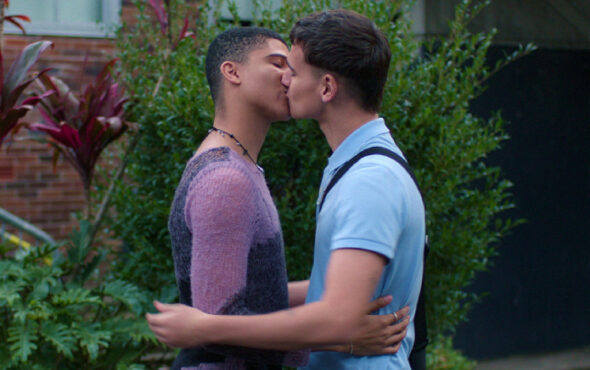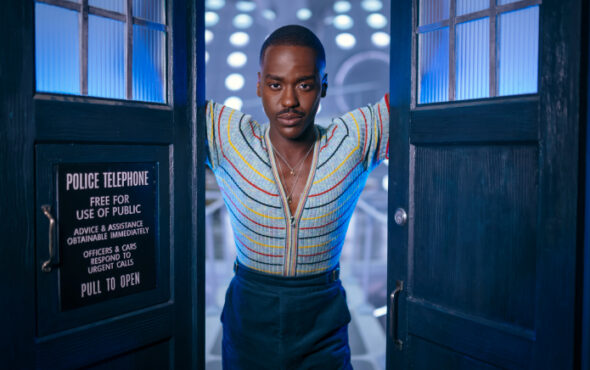
When Maia Kobabe proudly put the finishing touches to the graphic novel “Gender Queer” in 2019, the American author had no idea of the storm that lay ahead.
Three years later, Kobabe’s work became the most banned book in the United States, censored by 138 school districts across 32 states over what were deemed to be sexually explicit images – reflecting a wider conservative pushback against LGBTQ+ rights.
Kobabe, who identifies as an asexual gender queer person or someone whose identity does not conform to either male or female, said an initial feeling of sadness over the bans had since given way to anger.
“When a book is removed from a library, or a library is defunded, it impoverishes the whole community,” Kobabe told Openly by email.
“Books can provide us with reflections of ourselves and windows into other’s experiences,” Kobabe added. “I know ‘Gender Queer’ has been both of these for different readers.”
In March, the American Library Association (ALA) said there were 1,269 requests to censor library books last year – a record since the ALA started recording complaints more than 20 year ago and double the number registered in 2021.
Even President Joe Biden has weighed into the debate.
“I never thought I’d be a president who is fighting against elected officials trying to ban and banning books,” he said in April when addressing an annual awards event for teachers.
“Empty shelves don’t help kids learn very much. And I’ve never met a parent who wants a politician dictating what their kid can learn, and what they can think, or who they can be.”
Protecting children?
Supporters of the efforts to clear school library shelves of contentious material say they are protecting children from books that are not age appropriate.
“I don’t want any books banned,” said Tiffany Justice, a founder of pressure group Moms for Liberty.
“The authors should write, publish, and sell the books. If you want to include them in your public library, then so be it, but we’re talking about public schools.
“Curating the content in public school libraries is not banning books,” Justice said.
Books most likely to be banned from school libraries or questioned by parents and others are those about sexuality, gender identity or race, according to PEN America, a nonprofit organization that advocates for freedom of expression.
Of all the book’s restricted in schools during the first half of last year, 30% featured themes about race and racism, while nearly a quarter touched on issues of gender and sexuality and featured LGBTQ+ characters.
“Over this six-month timeline, the total instances of book bans affected over 800 titles; this equates to over 100 titles removed from student access each month,” PEN America said in a statement.
Texas, Florida, Missouri, Utah and South Carolina were the states most likely to remove texts from school libraries’ shelves, the group added.
Drugs and sex
Author Benjamin Alire Sáenz has seen his book “Aristotle and Dante Discover the Secrets of the Universe” banned by numerous school libraries and schools across the United States due to its depictions of homosexuality and references to drugs and sex.
For him, the reaction reinforces the need for writers to stand up as role models for LGBTQ+ people, particularly the younger generation.
“As a writer, I have a responsibility, whether I like it or not, to be a spokesperson for that community because I represent that community on the page,” he said.
The protagonists in his book, Aristotle and Dante, “belong to us,” he said, urging readers to see them as “our children, our sons.”
But for others, the discussion around books and the appropriateness of reading material for children, is both healthy and necessary.
“It’s easy to assume that those who challenge books threaten our democracy,” said Francesca Tripodi, an assistant professor at the School of Information and Library Science at University of North Carolina.
“But it is equally important to acknowledge that the person contesting said material can do so because they live in a functioning democracy.”
She questioned, however, whether the motives of those protesting were centred on children’s rights or with more of an eye on wider national political debate between social conservatives and liberals.
“Some of these challenges aren’t even being made by residents being served by the library,” Tripodi said.
Book censorship
The increase in censorship has presented LGBTQ+ authors with some unforeseen practical problems, too.
As a slew of legislative initiatives targeted transgender rights across the country, Naomi Kanakia, who is trans, had to update her author’s note on her latest book, a novel titled “Just Happy To Be Here.”
“The legal situation for trans kids had gotten so much worse in the six months since I’d written it,” said Kanakia, whose publisher describes her book as “a touching novel about all the confusions and intensities of high school, from sexuality to peer pressure.”
In March, the Trevor Project, a U.S. nonprofit dedicated to suicide prevention among LGBTQ+ Americans, warned that the “wave of book bans … has the potential to deprive young people of the opportunity to find themselves in stories.”
Keeping that opportunity open is the only thing that matters, said Kanakia – even if that means authors like her miss out on royalties.
“If they want my books, they can pirate them,” she said, with a laugh.
Reporting by Lindsey Anderson.
GAY TIMES and Openly/Thomson Reuters Foundation are working together to deliver leading LGBTQ+ news to a global audience.



